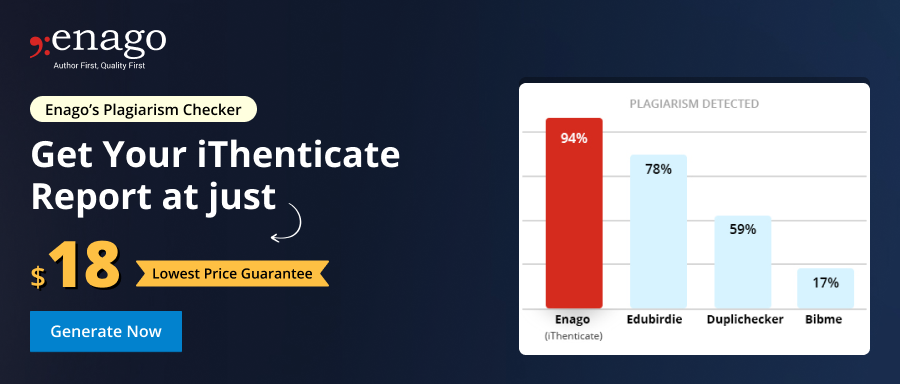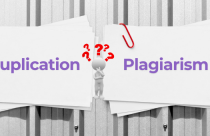How Should Editors Check a Document for Plagiarism That is Written by ESL Authors?

ESL authors often employ language editors to improve their manuscripts. The editors sometimes encounter cases where the authors have copied sentences from published papers of other authors to use as their own. MacDonnell presents a good overview of the reasons behind the plagiarism practiced by ESL authors.1 There are obvious cultural differences between Western and non-Western countries, and it has been suggested that copying of words is not considered as a serious issue by ESL authors.2 The Committee on Publication Ethics (COPE) has published an in-depth discussion paper on this issue.3 Without going into details about the reasons behind plagiarism, let us discuss how editors can check the document for plagiarism and what they can do once they detect plagiarism.
How to Detect Plagiarism
As a typical document written by a non-native speaker has many grammatical errors, the editors can detect plagiarism if some paragraphs are especially well written in an otherwise poorly written document. The editors can also google search random sentences from the text to see whether they have been copied. They can also check the references cited by the author to see if some text is reproduced. There are also many software tools available to detect plagiarism. 4
Communicate with Authors in a Polite Language
When plagiarism is detected, it becomes very important to convey this to the authors without using an accusatory tone. Most authors are accomplished academicians, and they may feel slighted if the editors accuse them of something that they perhaps didn’t know is an offense. The extent of copied material also plays a role in the editor’s actions. If whole paragraphs are copied from someone else’s work, then the editors should respectfully decline the work. They should present the authors with the similar passages from the source and request to rewrite the affected passages. On the other hand, if the author has copied only some sentences, the editors can “correct” the affected passages by paraphrasing and then ask the authors to cite the original source to avoid unethical research practices. As the authors request language correction in their manuscript, the editors can include slight paraphrasing in their usual editing services.
Paraphrasing as a Service
In addition to copying from others, some authors may copy some text, sometimes entire paragraphs and even the whole content, from their own published papers, and tell the editors to rewrite the text so as to not appear as a direct reproduction and avoid unethical research methods. Typically, this happens when a graduate student wants to write a thesis based on his/her publications but does not have sufficient time. In such cases, the editors can offer a paraphrasing service after making sure that the published papers are actually written by the author.
Other Strategies
Sometimes a good strategy to implement when large-scale plagiarism is encountered is to tell the authors to write the affected text in their own language and then get it translated it in English. The editors can then edit the translated text. This tends to work well for most authors. In addition to this, it is also important to educate the authors about the seriousness of plagiarism. As mentioned before, copying of words may not be considered a grave issue in some cultures. However, these issues can be easily avoided using a plagiarism detection tool.
References:
- McDonnell, K. E. (2004). Academic plagiarism rules and ESL learning: Mutually exclusive concepts? American University TESOL Working Papers, No. 2.
- Hayes, N., & Introna, LD (2005), ETHICS & BEHAVIOR, 15(3), 213–231: Cultural Values, Plagiarism, and Fairness: When Plagiarism Gets in the Way of Learning
- Elizabeth Wager (2011, April 26) How should editors respond to plagiarism? COPE discussion paper










